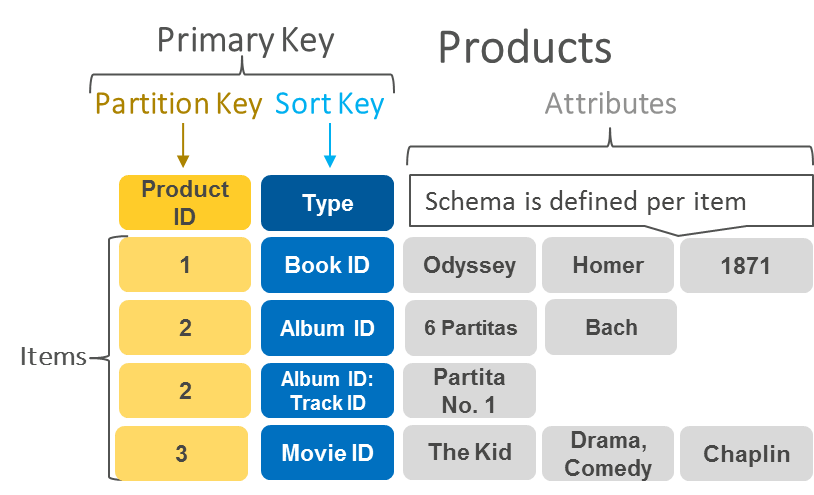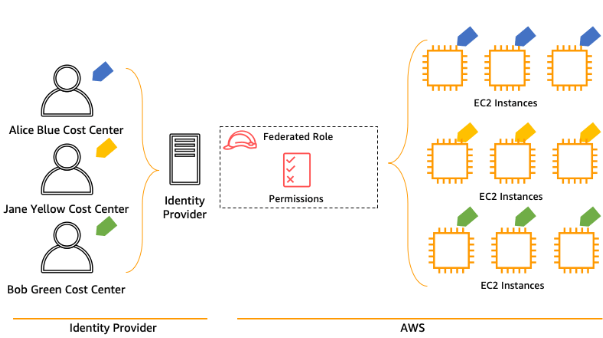
- Introduction to Amazon DynamoDB
- Key Features of DynamoDB
- Data Modeling in DynamoDB
- Capacity Modes and Pricing
- DynamoDB Streams and Triggers
- Security and Access Control
- Best Practices for Performance Optimization
- Use Cases and Real-world Applications
Amazon DynamoDB is a fully managed NoSQL database service provided by AWS, designed for high-performance applications that require low-latency data access at any scale. It supports key-value and document data models, making it suitable for a wide range of use cases such as web applications, mobile backends, gaming, and IoT. DynamoDB automatically handles data distribution, replication, and Amazon Web Service Training across multiple AWS regions, ensuring high availability and fault tolerance. With features like on-demand backup, point-in-time recovery, and built-in security through encryption and access control, DynamoDB simplifies database management while maintaining strong performance. It also integrates with other AWS services, such as Lambda and CloudWatch, enabling serverless architectures and real-time monitoring.
Introduction to Amazon DynamoDB
Amazon DynamoDB is a fully managed NoSQL database service provided by AWS, designed to support key-value and document data models. It offers seamless scalability, consistent single-digit millisecond latency, and built-in security, making it ideal for high-performance applications. DynamoDB eliminates the complexities of database management, such as hardware provisioning, setup, replication, and Mastering Snowflake Architecture, allowing developers to focus on application development without worrying about infrastructure overhead. DynamoDB is widely used for various use cases, including mobile and web applications, gaming leaderboards, real-time analytics, and IoT applications. It provides native support for event-driven architectures, global replication, and serverless computing, integrating well with AWS services such as AWS Lambda, Amazon Kinesis, and AWS Glue. As organizations increasingly adopt cloud-native solutions, DynamoDB remains a preferred choice for applications requiring scalability, availability, and reliability.
Are You Interested in Learning More About AWS? Sign Up For Our AWS Course Today!
Key Features of DynamoDB
- Managed NoSQL Service: DynamoDB is a fully managed NoSQL database service that eliminates the need for manual database administration, such as patching, backups, and scaling.
- High Availability and Durability: Data is AWS Training across multiple Availability Zones within an AWS Region to ensure fault tolerance and continuous availability.
- Scalability: DynamoDB supports both on- Key Artifacts in DevOps for Efficient Delivery and provisioned capacity modes, allowing applications to scale seamlessly without downtime.
- Low Latency: Designed for high-performance applications, DynamoDB provides single-digit millisecond response times, making it suitable for latency-sensitive workloads.
- Flexible Data Model: This model supports key-value and document-based data storage, allowing developers to store, retrieve, and manage complex data structures.
- Global Tables: Enables multi-region replication, ensuring low-latency reads and high availability for globally distributed applications.
- DynamoDB Streams: Captures real-time changes to items in a table, enabling event-driven architectures and real-time analytics.
- Automatic Backups and Point-in-Time Recovery (PITR): This feature provides continuous backups and the ability to restore data to any point within the last 35 days.
- Built-in Security: It supports encryption at rest and in transit and fine-grained access control through AWS Identity and Access Management (IAM).
- Integration with AWS Services: Works seamlessly with AWS Lambda, Amazon S3, Amazon Kinesis, AWS Glue, and Amazon Redshift to build scalable and event-driven applications.
- Provisioned Capacity Mode: Users define the number of read and write capacity units needed for the application. It is ideal for applications with predictable traffic patterns. Auto Scaling can be used to adjust capacity based on Future of DaaS in Cloud Computing automatically.
- On-Demand Capacity Mode: Automatically scales capacity based on application workload. Charges are based on actual read and write requests rather than pre-allocated capacity. Suitable for applications with unpredictable or variable workloads.
- Additional Pricing Components: Read and Write Capacity Units (RCU & WCU): Billed based on the number of read and write requests per second.
- Storage Costs: Charged based on the total data stored in DynamoDB tables.
- DynamoDB Streams Pricing: Billed for data retrieval and processing of stream events.
- Global Tables Pricing: Additional charges apply for multi-region replication.
- Data Transfer Costs: Data transferred across AWS Regions incurs additional costs.

To Earn Your AWS Certification, Gain Insights From Leading AWS Experts And Advance Your Career With ACTE’s AWS Course Today!
Data Modeling in DynamoDB
DynamoDB follows a schema-less data model that provides flexibility in storing and querying data. The core building block of a DynamoDB table is the primary key, which determines how data is partitioned and accessed. DynamoDB supports two types of primary keys Partition Key (Hash Key) A simple primary key that uniquely identifies each item in the table. Items with the same partition key are stored together. Composite Primary Key (Partition Key + Sort Key) A combination of a partition key and a sort key, allowing multiple items to share the same partition key while being uniquely identified by the sort key. DynamoDB also supports secondary indexes, which enhance query capabilities by enabling efficient searches beyond the primary key, Global Secondary Indexes (GSI) Allow data to be queried using alternative attributes independent of the primary key. Local Secondary Indexes (LSI) Allow querying within a partition Understanding Grid Computing Link a Raspberry Pi to the Internet using different sort keys. Best Practices for Data Modeling Denormalization Unlike traditional relational databases, DynamoDB encourages denormalization to optimize read and write operations. Single-Table Design Storing multiple entity types in a single table helps maximize query performance and reduce costs. Efficient Partitioning Selecting an appropriate partition key ensures even data distribution and prevents performance bottlenecks. Use of Indexes Employing Global Secondary Indexes (GSI) and Local Secondary Indexes (LSI) can improve query efficiency without impacting the primary table’s performance. Optimized Query Patterns: Designing queries based on access patterns ensures reduced read and write costs.
Considering Pursuing a AWS Master’s Degree? Enroll For AWS Masters Course Today!
Capacity Modes and Pricing
DynamoDB provides flexible pricing options to accommodate different application needs. Depending on workload characteristics, users can choose between provisioned capacity mode and on-demand capacity mode.
DynamoDB Streams and Triggers
DynamoDB Streams, which record changes made to table elements, make real-time data change tracking possible. This is helpful for event-driven applications and real-time analytics because each change event (insert, update, delete) is captured and stored for a maximum of 24 hours.
Key Benefits of DynamoDB Streams: Provides a reliable mechanism for tracking data changes. Enables event-driven architectures by triggering AWS Lambda functions. Useful for audit logging, real-time analytics, and caching solutions. Helps in synchronizing data across multiple systems.
Triggers with AWS Lambda: DynamoDB Streams can be integrated with AWS Lambda to execute automated actions based on data changes. Example use cases include Automatically updating a search index when new records are inserted. Sending notifications or messages to Amazon SNS or Amazon SQS. Propagating changes to another database or data warehouse. Maintaining materialized views for analytical workloads.
Want to Learn About AWS? Explore Our AWS Interview Questions & Answer Featuring the Most Frequently Asked Questions in Job Interviews.
Security and Access Control
DynamoDB provides robust security features to ensure data confidentiality, integrity, and compliance. Security is implemented at multiple levels, including access control, encryption, and monitoring.
Access Control with IAM:
Network Security: Supports VPC Endpoints, allowing secure access without exposing data to the public internet. Integration with AWS WAF to protect against web-based threats and SQL injection attacks. AWS CloudTrail logging for auditing and monitoring access patterns.
Compliance and Regulatory Standards: DynamoDB complies with multiple industry standards and regulations, including: PCI DSS for payment security. HIPAA for healthcare applications. For government and enterprise security requirements, ISO 27001, SOC 2, and FedRAMP.
Conclusion
Amazon DynamoDB is a powerful NoSQL database service that provides scalability, availability, and security for modern cloud applications. High performance, versatility, and a smooth interface with AWS services are all provided by its fully managed nature, which also removes administrative overhead. AWS Training offers the resources needed to effectively develop and grow systems, whether for serverless computing, real-time analytics, or worldwide applications. Organizations may optimize their DynamoDB deployments for maximum performance and cost-effectiveness by adhering to best practices in capacity planning, data modeling, and security implementation. Developers creating contemporary, scalable cloud apps continue to favor DynamoDB because of its event-driven features and worldwide.






